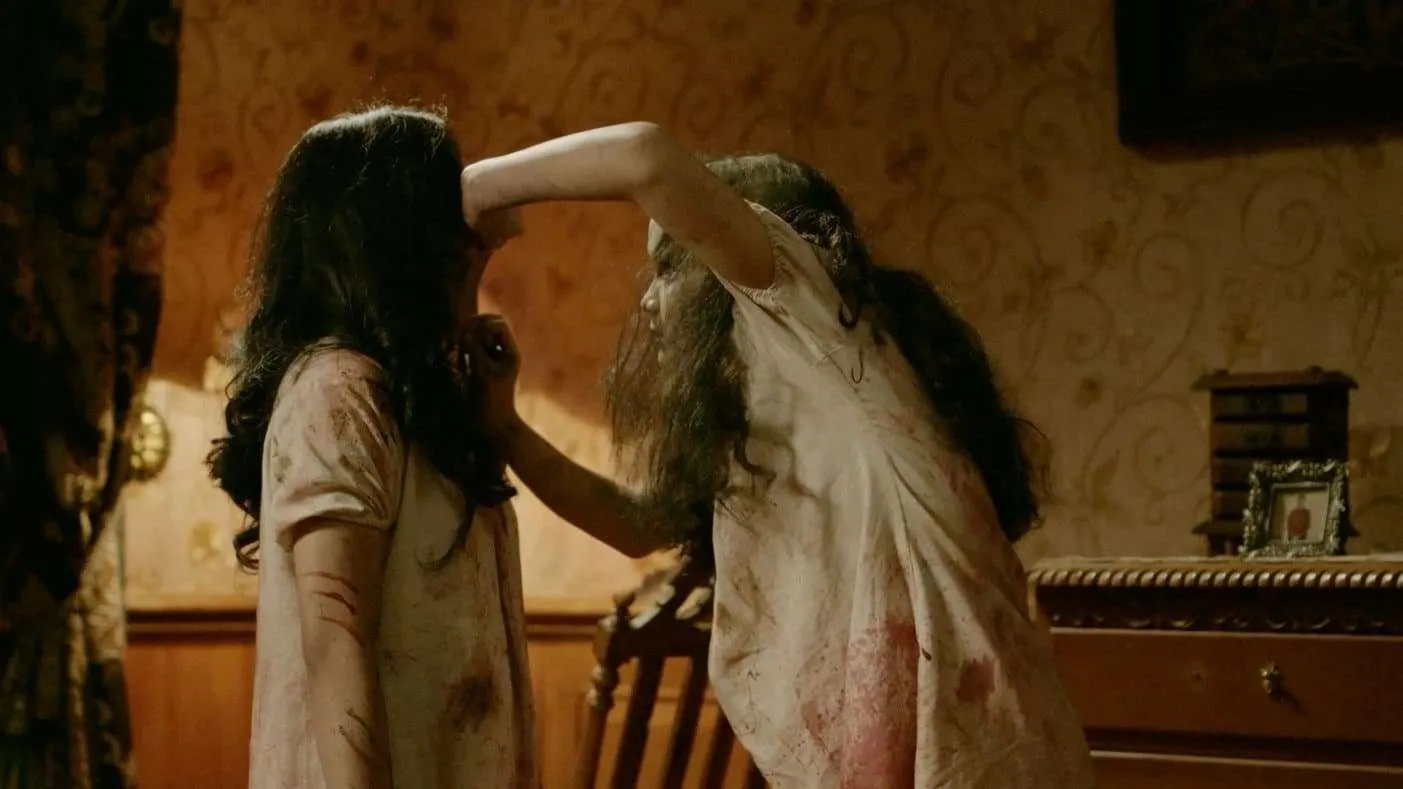In a remote village outside Semarang, Indonesia, shadows lengthen at dusk—not from trees, but from unseen grief. Sumala begins in 1948, where Sulastri and her husband Soedjiman have endured eleven childless years. Desperate and shamed, Sulastri turns to forbidden forces—her pact with a dark spirit granting not one, but twin daughters: Kumala, gentle but disabled, and the cursed Sumala. Bound by cruel rules, Sulastri fails the deal when Soedjiman murders the deformed twin at birth. That act—sealed in blood and broken vows—echoes across decades, awakening a spirit older than regret.

Years later, the village trembles under a curse reborn. Kumala grows—ostracized, overlooked, and tied to neglect—but her heart remains pure. On her eighth birthday, her sorrow becomes the conduit for Sumala’s return. The dead twin reclaims vengeance through Kumala’s body, punishing those who tormented her sister. Houses burn, children vanish, and even daylight cannot pierce the terror. Villagers whisper the name in fear: Sumala. What began as sorrow becomes prophecy, and Kumala’s presence bends with malevolence, guided by a sibling she never met—but now inhabiting her flesh.
As horror mounts, a few brave hearts dare defiance. A local elder remembers fragments of the pact: the promise that Sumala’s spirit could be undone—if a descendant of the original line offers their fear in exchange for forgiveness. Sulastri, now broken with guilt, leads a desperate ritual under harvest moonlight. Faces hollowed by grief, villagers join hands across cornfields and flooded rice terraces. They call the spirit out, chanting the ancient words their ancestors buried in shame. Thunder cracks. The ground trembles. Sumala materializes, skeletal and rhythmic, pale teeth bared in twilight. The sacrifice begins—not with blood, but with tears: Sulastri offers each regret, each lost moment, in hopes of calming a horror that is both mother and monster.

In the final reckoning, Sumala releases her hold, shimmering dissipating into dawn mists. Kumala stumbles free—exhausted, silent, and unforgiven. The village stands shattered, cleansed, but forever marked. Sulastri mourns not only her lost daughter, but the curse she unleashed. In the film’s closing frames, Kumala walks toward a lonely riverbank, her pale eyes reflecting sunrise. Somewhere underwater, a hand reaches out—a twin’s ghost, submerged but not forgotten. Sumala (2024) is not simply a ghost story—it is a cautionary lament about broken vows, maternal sacrifice, and how vengeance can span lifetimes. In the ossified husk of memory, Sumala still watches... waiting for another promise to break.


